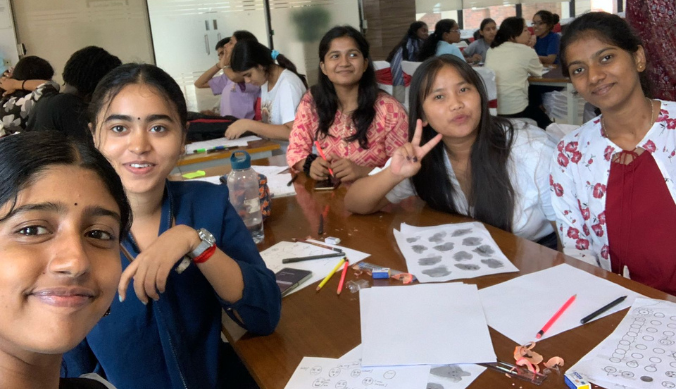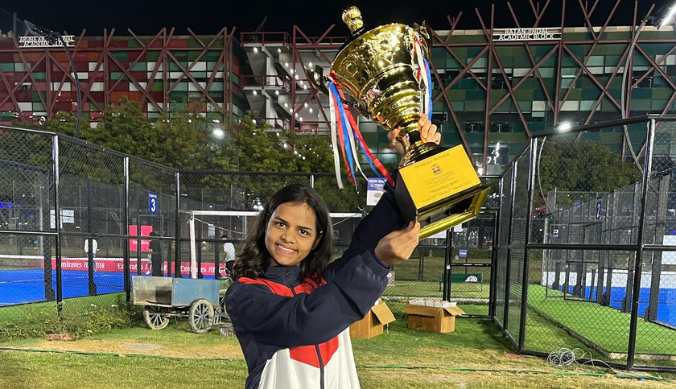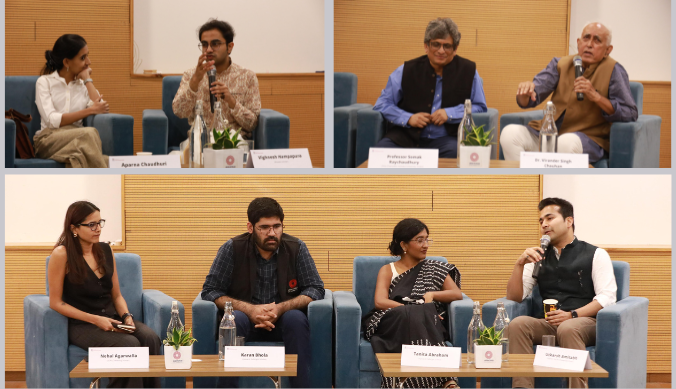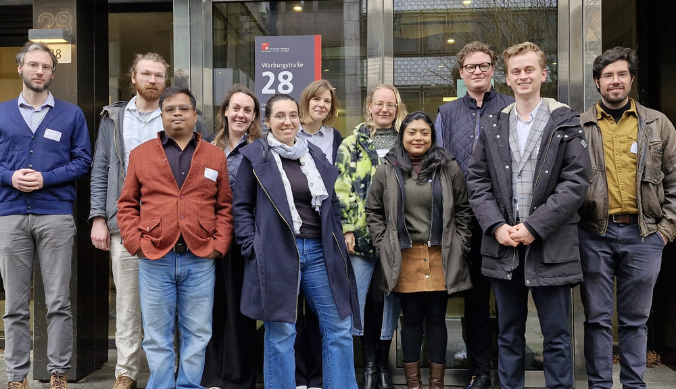Reflecting on a period of reflection: My experience with and in the CSIP Research Fellowship
The very practitioner-friendly concept of the Fellowship itself is one that I have been recommending to many people I know, simply because it allows for material security while focusing on a very specifically defined research study, writes Taranga Sriraman
It was a time of reconciling with the collective and individual traumas of the ‘second wave’ of the COVID-19 pandemic in India, confronting the discovery of the addition of Long Covid to the list of chronic, long-term illnesses I already lived with, and reflecting on the then 15 years spent in building organisations and working in direct crisis intervention. That is when I applied to the CSIP Research Fellowship offered by Ashoka University, one that a few professional acquaintances and feminist friends had held earlier and produced fantastic work as an outcome of. Honestly, all I needed was a space to read and write in and through to explore questions that have intrigued me as a feminist practitioner in the third sector for a long time. These questions that I never had the time to delve into in a structured, academic and independent manner, simply because I had devoted all my time to building and expanding organisations, attempting to reclaim and strengthen systems, and mobilise resources for and with massive teams of people who somehow looked at me for leadership and guidance in a daily, executive sense. I literally finished my last day of full-time work and spent the next two hours writing feverishly to complete my application for the Fellowship in time for the final deadline. I was surprised that my decidedly non-academic way of writing and socialist feminist conceptualisation of the proposed research study was shortlisted for the next stage.
The very practitioner-friendly concept of the Fellowship itself is one that I have been recommending to many people I know, simply because it allows for material security while focusing on a very specifically defined research study and offers the safety—as it were—of the work being exploratory. As practitioners, many of us do not have the privilege of training and working in full-time, autonomous research. It was scary for me to do this study independently—given that my last solo research study and writing took place 15 years ago. However, I needed to take this leap of faith and courage. I am glad I applied and was selected.
The research workshops organised by the CSIP team for all the Fellows were quite engaging and beneficial. In particular, I enjoyed the session on journalistic and storytelling modes of researched writing, which lent me confidence in my natural writing style.
I also learnt a lot from the experiences and knowledge of other Fellows in the cohort—the friendship and camaraderie provided solidarity and strength during a year that was personally and politically rough for most of us. I believe it is integral for the CSIP team to understand that many of us, especially lifelong practitioners and activists, are often assailed by imposter syndrome in a world that denies the intellectual merit of our work and discourse merely because it is not mainstream/formal academic. Yes, this is despite our strength of spirit that has built our body of work in the face of many invalidations and systematic disparagement. In such a world, a programme advertised for those who have actually engaged in resource mobilisation to sustain movements and organisations with radical worldviews for social change must be designed to support such practitioners in specific and sensitive ways. I must say that the presence and engagement of Ingrid Srinath, then Director of CSIP, as well as Ratna Menon, Ashoka University, in particular, exactly demonstrated how one can be supportive and a source of strength and confidence while also helping one critically analyse and improve one’s work. While all processes and people involved in the process of the Fellowship—in terms of direct interaction—were not geared to approach Fellows as practitioners and members of movements, in the teaching-learning mode, the interactions with the abovementioned people did remain in my heart as warm and empathetic in an empowering way.
The process of reading, interviewing participants, analysing, writing, re-writing, receiving and incorporating feedback, and re-writing yet again—I must have written at least four drafts of the final working paper—was both gritty and deeply enjoyable. It reminded me that I enjoy observing and gathering information as well as perspectives and writing in all its painful pleasure, and presenting histories as stories that are still playing out, which are never complete nor without nuance and complexity. The entire Fellowship afforded me time to reflect on my reflections and those of others. For that, I am grateful.
Were there things that could have been better? Yes, we could all have had more realistic and accurate expectations from ourselves and each other, and I can only urge the CSIP research team to incorporate greater clarity on the idea of the Fellowship as a primarily self-driven exercise/journey during the very initial days. Writing guidance could also have been brought into the picture earlier on. More group sessions could have been held at regular intervals for the entire cohort to gain clarity on standards/guidelines on format and language, among other things. A formal feedback component at the end of the Fellowship period would also help improve the experience for both the CSIP team and the Fellows, year after year. These are all things being suggested in good faith and mutual trust by this alumna of the Fellowship, who genuinely believes this is a wonderfully unique and necessary programme by the CSIP that bridges the gaps between academia and practice in the third sector in a way that no other institution does. In conclusion, I want to reiterate my recommendation to all practitioners and activists to consider applying to this programme as a safe space for reflection and articulation of concepts and learnings that we may and usually do not find time for in the constant emergencies of on-ground work.
(Taranga Sriraman was a Research Fellow with the Centre for Social Impact and Philanthropy in 2022. She is a socialist feminist and a social work professional, specialising in work with State systems, sexual-and-gender-based violence response, education and gender. She has led national programmes of the MHRD and TISS within a professional career of 17 years and now writes and consults independently)
Study at Ashoka













